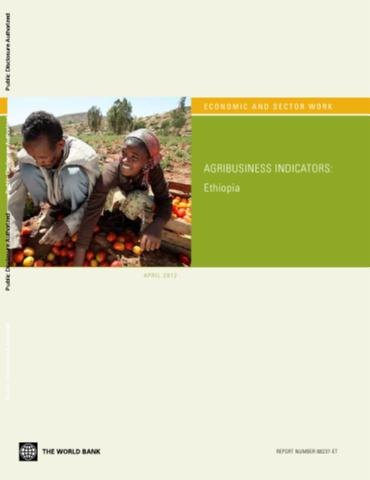Resource information
Because agriculture is the economic backbone of most countries in Sub-Saharan Africa, including Ethiopia, any meaningful sustainable development program in the continent must therefore be anchored in the sector. The concept for this study on agribusiness indicators was based on the vital role that agribusiness plays in agricultural development. The study focuses on agribusiness indicators (ABI) to identify and isolate the determining factors that lead private investors and other stakeholders to participate in agribusiness and to engage in discourse regarding its development. A more thorough empirical understanding of these determinants in turn can usefully inform the types of policy reforms that can promote agribusiness in Africa. In Ethiopia, the ABI team focused on the following success factors: a) access to critical factors of production of certified hybrid seeds, fertilizer, and mechanical input; b) enabling environment in terms of access of credit and transportation; and c) government expenditures on agriculture, and trade and regulatory policies that currently influence the agribusiness environment. The factors and indicators that the research team has included in this study are not exhaustive but rather are intended to serve as a pilot that could be scaled up to include more variables and countries. The findings of the study revealed the dominant role of the government in the seed and fertilizer markets. In the seed sub-sector, perennial shortages of both basic and certified seeds have greatly limited agricultural productivity in Ethiopia.


